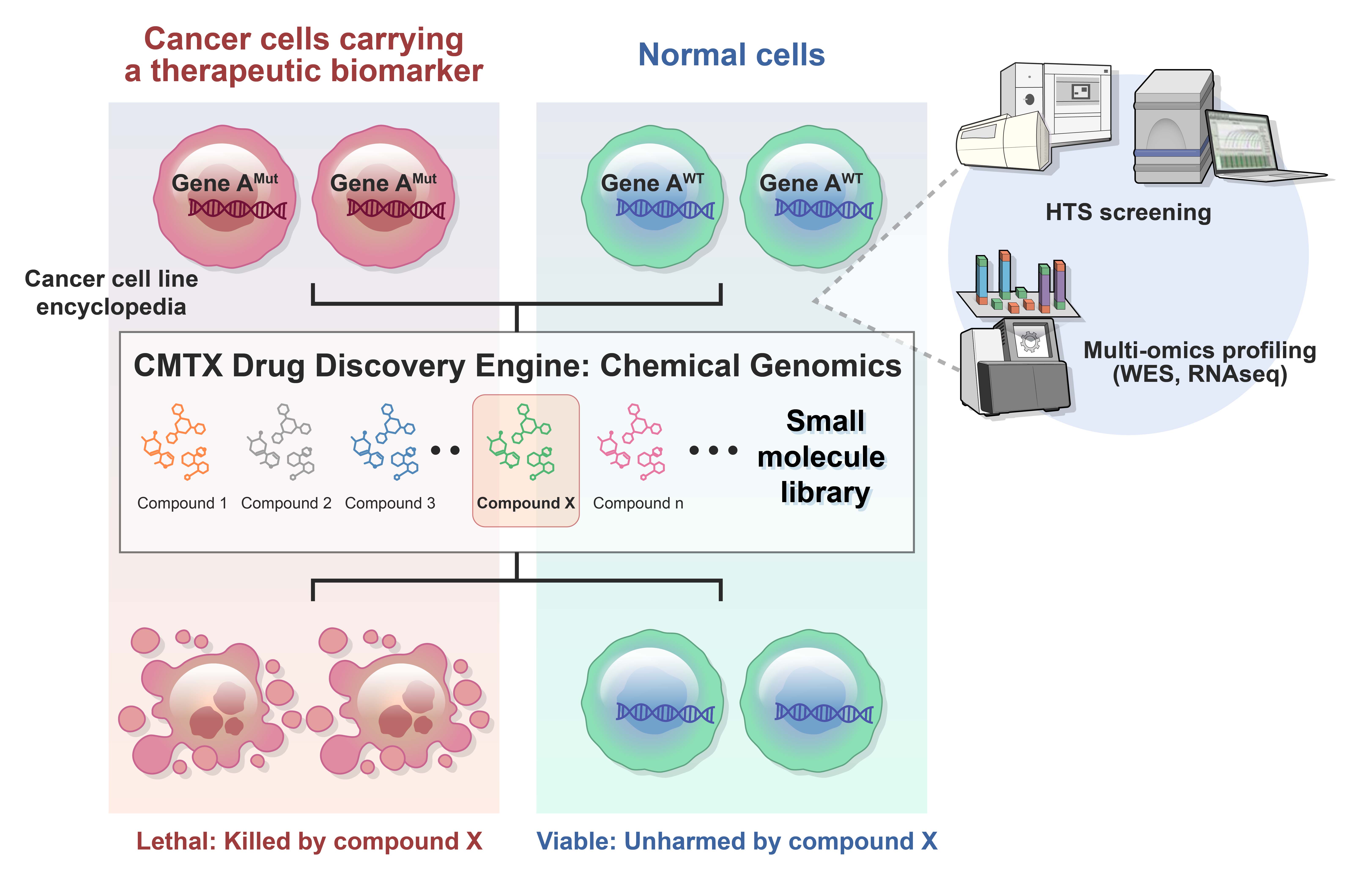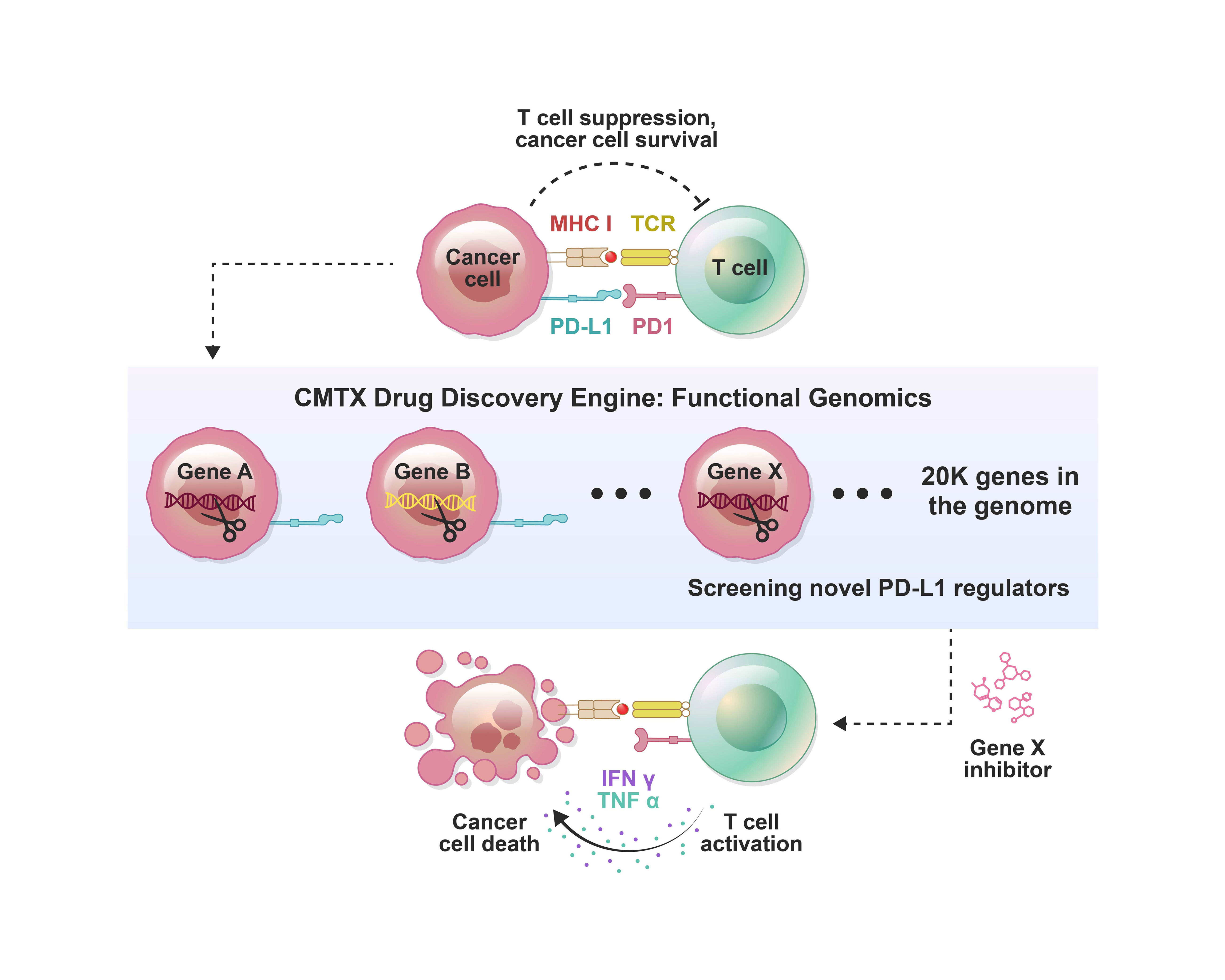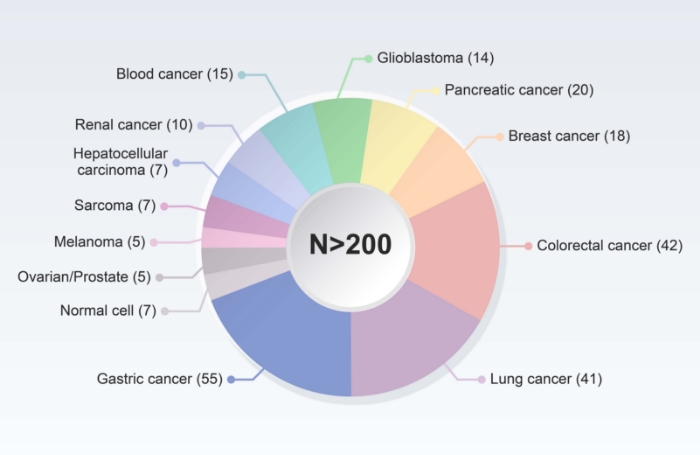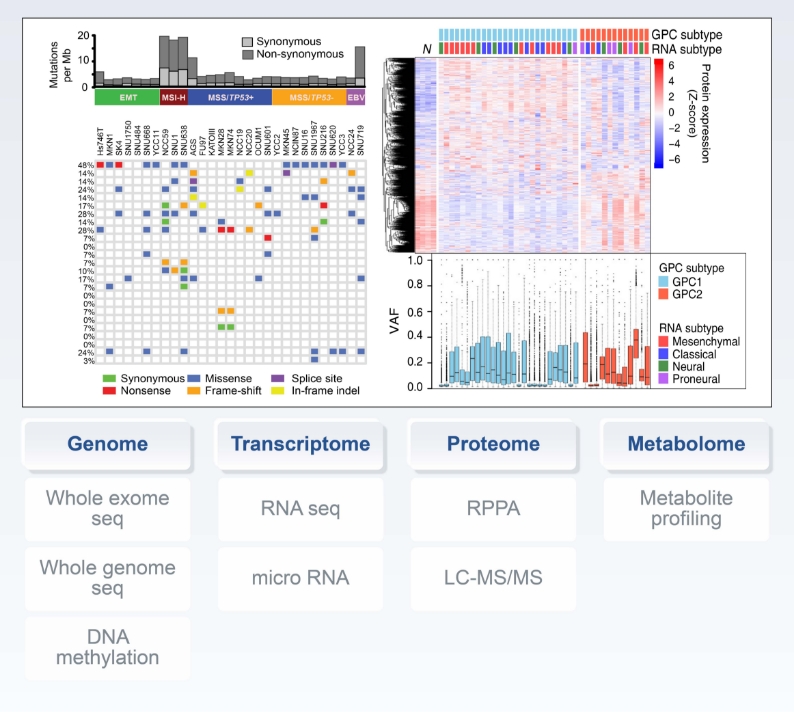Chemical genomics discovery engine
Our chemical genomics discovery engine simultaneously screens for targeted therapy candidates and companion diagnostic biomarkers using a library of small molecule compounds and the CMTX cancer cell line panel. Through this approach, we discovered CX001, a small molecule compound, that selectively kills EMT-subtype gastric cancer cells. We are now expanding the application of this tool to address multiple treatment-refractory tumor subtypes, aiming to uncover novel therapeutic options and diagnostic biomarkers.





